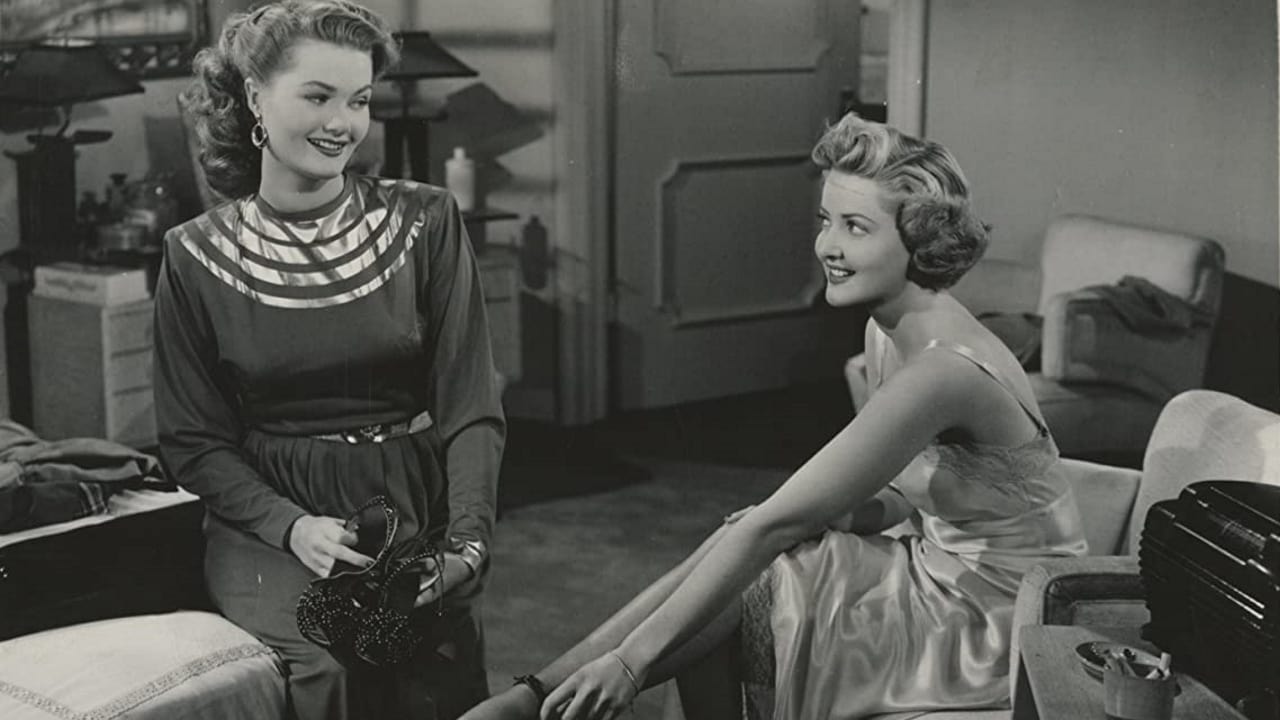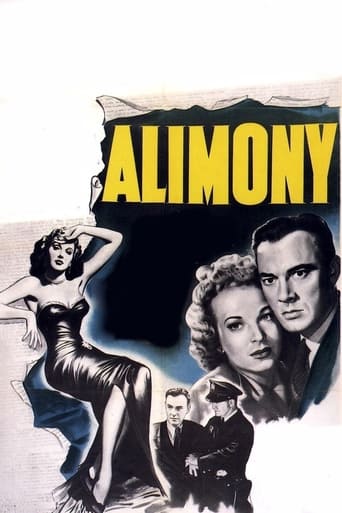

The film begins with Dan talking to Mr. Klinger about the exploits of Klinger's daughter, Kitty. What follows is a very lengthy flashback. It seems that Kitte was interested in getting rich fast. She worked for a while as a girl who would help blackmailers. When a mark came into the room with her along, she'd strip off much of her clothes and grab the guy...while her partner snapped incriminating photos! Tired of this racket, she now set her mind to bigger game and eventually this meant Dan. While Dan was happily dating Linda, Kitty schemed to seduce him away from her...all because she thought Dan was destined for riches. And, when this didn't pan out and Dan's musical career didn't appear to be paying off, she dropped him and was on to the next scheme. In many ways, this is like the great Pre-Code film, "Red-Headed Woman"...but more sanitized and without the great style of this earlier film. Now I am not saying it's bad...but "Red-Headed Woman" is so amazing and entertaining that it's no disgrace to not be as good as this scandalous film. Overall, a decent low-budget film...enjoyable because Kitty is so darn awful!By the way, the landlady in the film is Marie Blake (also known by the stage name 'Blossom Rock'). That's Jeanette MacDonald's older sister...and Grandmama from the TV show "The Addams Family".
... View MoreIf you can get past the sappy ending and a few plot stretches, this is a pretty good programmer. Seems Dan's (Beal) a struggling songwriter who takes inspiration from Kitty (Vickers) such that he comes up with a popular hit. Trouble is he's had a long relationship with good girl Linda (Brooke) that now comes unglued as Kitty schemes to get a share of the windfall. Thus the narrative follows the romantic and calculating travails of the boardinghouse trio.It's a cheap production. However, the acting is good even if the story seldom leaves movie sets. This is a chance to catch two of the 40's premier vixens in the same frame. Brooke is cast against type, all sweetness and light, yet managing to bridge the strained abruptness of Linda's romantic turnarounds. At the same time, Vickers hides her scheming under a pretty face that's hard to resist. To me, the non-handsome Beal is perfect for the beleaguered composer, his disheveled appearance quite appropriate to the role. And too bad this was the only screen appearance of Laurie Lind (Helen) whose mop of hair and distinctive looks are career worthy. Then too, it's a colorful touch casting the so-called mad-Russian, Leonid Kinskey, as the harried music producer. He lends an exotic contrast to the more conventional others. It's also worth noting how radio dominates the movie's entertainment scene. However, 1949 was a year when TV was making inroads into the popular media including film, but no hint of that here. Anyway, the distinctive cast makes this contrived story worth a look-see.
... View MoreA young songwriter (John Beal) tells his story of his relationship with a missing young woman (Martha Vickers) who was part of a shady alimony racket where young women marry men they don't love and manipulate the husband into divorcing them so they can share the alimony with the shyster lawyer (Douglas Dumbrille) representing them. Vickers is a tough cookie who claims she influenced Beal into writing the song that made him a success, stealing him away from his girlfriend (Hillary Brooke) with the intention of fleecing him.This fast-moving "B" film ranks slightly higher than an exploitation movie, yet is actually very entertaining. The future "Blossom Rock" (Marie Blake) is extremely amusing as Beal's and Vickers' advice-giving landlady with Dumbrille appropriately smarmy as a lawyer using young women to meet his own ends. Vickers goes over-dramatically ballistic in one scene with Brooke but for the most part, she is a cool cat with claws sharpened for that waiting pounce. It is easy to see why Beal could be manipulated by her. While Brooke isn't necessarily naive enough to see through Vickers, she isn't given the opportunity to stand up to Vickers beyond a simple warning. Still, she's believable, and her nobility isn't played as stupidity or wimpiness. The result is a fun scam-related noir drama that may not be classic but is a step above the usual poverty row pot-boilers.
... View MoreProduced by the obscure Equity Pictures, this tale of woe features a decidedly third-string cast, and a disjointed, unfocused and under-motivated script -- possibly the result of avoiding the wrath of the Breen office, or possibly plain incompetence. Zeisler was one of the more interesting directors working on Poverty Row, and manages to keep the story moving, instilling it with his usual arid fatalism. However, he fails to emphasize some of the key plot developments, and a clever last-minute twist is pretty much wasted. Many of the background details are patently ridiculous; e.g., Beal's overenthusiastic songwriter thumps on the piano all night in his boarding house's salon without eliciting complaint from his fellow boarders, and his girlfriend is absurdly forgiving of his two-timing indiscretions. Martha Vickers, dolled up like a waxworks, makes one of the least alluring femmes fatales in history, Beal must have been a desperation choice for a leading man, and the original songs are incredibly verbose. Despite its shortcomings, B-movie aficionados will be intrigued by the surprisingly overt depiction of unscrupulous women luring unsuspecting husbands into compromising positions to extract alimony. There's some good support from Laurie Lind as the cynical golddigger friend of the lead character, and from Hollywood's favourite stereotype East European eccentric, Leonid Kinskey, as a song plugger.
... View More